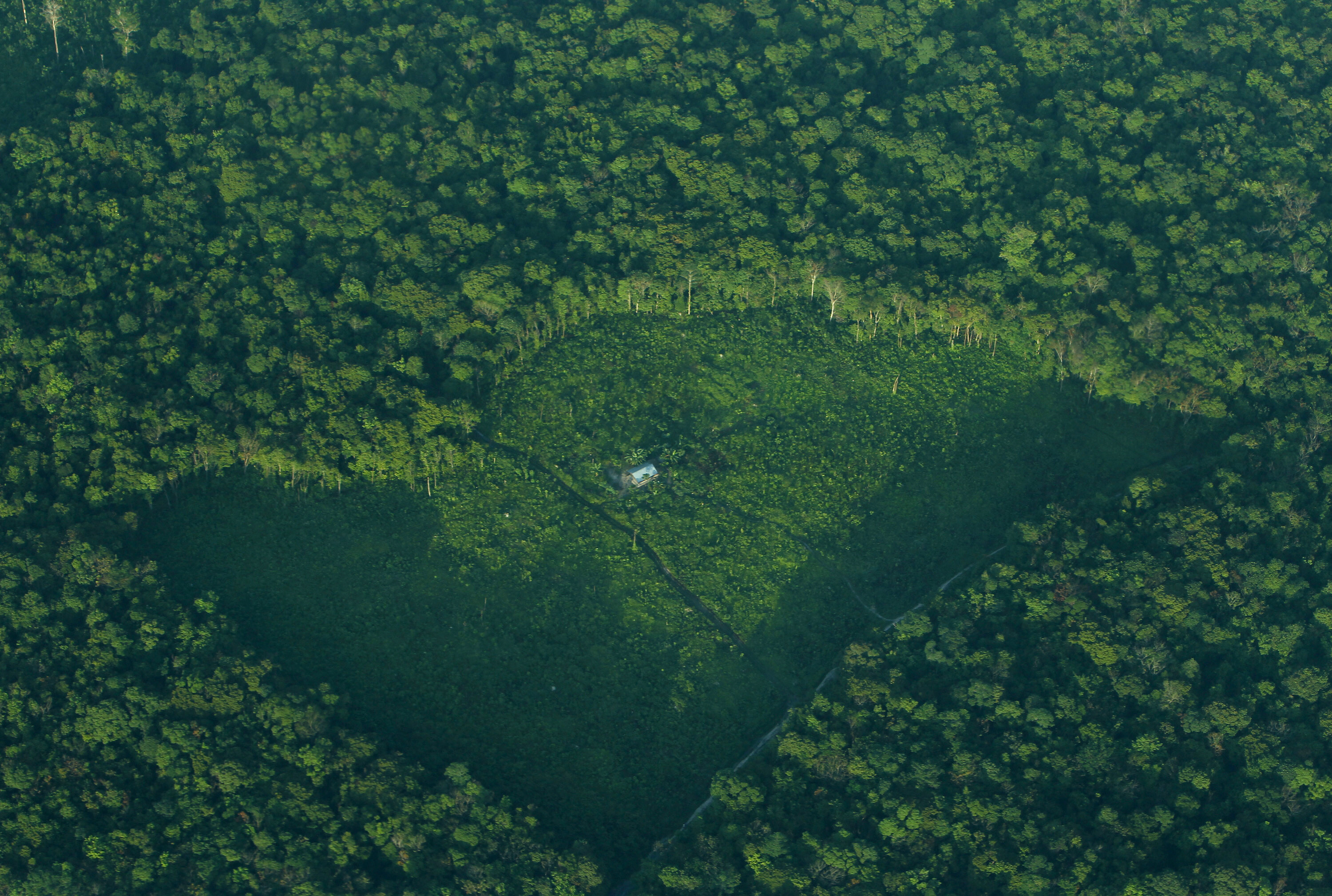3 reasons for companies to embrace forest carbon markets in 2024

Carbon credits can be a vital tool in preserving the world's forests
Image: Photo by Tobias Tullius on Unsplash
- Preventing climate catastrophe requires a level of determination with little precedent in human history.
- One of the most immediately scalable climate solutions remains underutilized: the voluntary carbon market.
- High-quality forest carbon credits traded at the voluntary carbon market are an irreplaceable tool for investing in the protection and restoration of forests.
Buoyed by major progress towards integrity, quality and impact on the supply side and consistent demand by companies that are at the forefront of climate action, the voluntary carbon market is primed for growth. This momentum is likely to continue to build through 2024 and beyond.
There is no climate-safe future without nature
Nature plays a key role in climate regulation, providing up to one-third of the climate mitigation required to prevent runaway warming. But the window to realize that potential is rapidly closing. Leading scientists agree that we need to halt deforestation and massively scale natural climate solutions by 2030. Still, actions to protect, sustainably manage or restore natural ecosystems face an enormous funding gap, larger than electric vehicles and clean energy.
The Synthesis Report of the IPCC Sixth Assessment Report (AR6) summarizes the state of knowledge of climate change and re-affirms that reducing deforestation in tropical regions has the highest climate pollution-reduction potential of all land, ocean and agriculture-based climate action. These same findings confirm that investments in nature make up three of the top five most cost-effective approaches to limiting global warming.
The good news is the voluntary carbon market is poised to be an important lever for keeping tropical forests standing. While companies must continue to do the hard work of decarbonizing their internal operations and value chains first, high-quality carbon credits allow companies to finance additional emissions reductions beyond what they cannot reduce or avoid.
One recent proposal from the Science Based Targets initiative suggests including carbon credits for abatement purposes in Scope 3 emissions – those stemming from suppliers and the use of a company’s products. Although the details are yet to be decided, done with integrity, this guidance could create a possible path to net zero, while delivering much-needed funding from the private sector for nature and communities on the frontlines of climate impact.
Moreover, carbon credits enable corporations to set a price on emissions on their balance sheets, creating financial incentives to reduce the footprint of their value chains. When rooted in rigorous science and implemented well and in partnership with local communities, forest carbon projects and programmes can create new livelihoods in rural areas, keep wildlife out of harm’s way and promote food and water security. They are a rare opportunity to address injustices past, present and future — and make progress towards global climate, biodiversity and poverty reduction goals.
What’s the World Economic Forum doing about climate change?
The voluntary carbon market is maturing
Buyers have become more discerning about credit quality and in the coming years, there should be a supply-side response. Oversight bodies are united and making substantial progress towards a new consistent integrity framework for the entire global voluntary carbon market and carbon credits. Simultaneously, new methodologies, including from Verra and the Architecture for REDD+ Transactions (ART) have raised the ceiling for impact.
Demand is also on the rebound. Despite rumblings in the press, several studies have recently dispelled some of the most pernicious myths about the voluntary carbon market. Businesses that purchase voluntary carbon credits are almost twice as likely to report lower gross emissions year-on-year — and invest three times more into decarbonizing their value chain than non-buyers. It’s also increasingly clear that buyers are willing to pay a premium for high-quality credits that deliver demonstrable co-benefits for biodiversity and community development.
There are legitimate technical, financial and regulatory hurdles on the road to net-zero emissions. Nearly 1,000 public companies have made a net-zero commitment, but only 7% are on track to meet those goals. To bridge that gap in near-term targets, they need a way to fund additional credible climate action that otherwise wouldn’t happen. High-quality carbon credits are not an environmental indulgence purchased to avoid climate responsibilities — they are a proven, immediate and scalable tool that should be part of any comprehensive, science-based strategy.
Technical progress is unlocking scale
For many years, the biggest challenge for credit-sellers was measuring, with reasonable accuracy, how their projects have reduced emissions. Thanks to new breakthroughs in remote sensing, aerial imaging and artificial intelligence, monitoring has improved dramatically.
Governments are also scaling up their involvement. After decades of work to create low carbon economies, while also conserving vast tropical forests, high-quality, large-scale jurisdictional credits are coming online in Guyana, Costa Rica and Ghana. These hold the promise to fund tropical forest conservation and create sustainable livelihoods delivering benefits to Indigenous and local communities.
Guidelines on what constitutes a high-quality carbon credit have also become clearer and more accessible. Through the efforts of groups like the NCS Alliance, We Mean Business, third-party rating agencies and risk-adjusted portfolios, as well as resources like the Tropical Forest Credit Integrity Guide, companies now have resources available to them to identify the best-available carbon credits to maximize their environmental impact and minimize risk. Most importantly, the Integrity Council for Voluntary Carbon Markets (ICVCM) is establishing the world’s first quality bar for the global market.
Integrity is critical. How we hold participants accountable, improve methodologies and fortify guardrails around human rights and community benefits is vital. But we cannot allow scrutiny to curdle into undue cynicism, derailing high-potential efforts to slash emissions, protect our biosphere and build resilience in the world’s most vulnerable communities. There is no path to climate stability without the private sector's full participation.
As former U.S. Special Envoy for Climate, John Kerry, recently expressed that the voluntary carbon market “is a vital tool to keep 1.5C in reach. Let’s not waste any more time or let the perfect be the enemy of the good.”
Accept our marketing cookies to access this content.
These cookies are currently disabled in your browser.
Don't miss any update on this topic
Create a free account and access your personalized content collection with our latest publications and analyses.
License and Republishing
World Economic Forum articles may be republished in accordance with the Creative Commons Attribution-NonCommercial-NoDerivatives 4.0 International Public License, and in accordance with our Terms of Use.
The views expressed in this article are those of the author alone and not the World Economic Forum.
Forum Stories newsletter
Bringing you weekly curated insights and analysis on the global issues that matter.
More on Nature and BiodiversitySee all
Marco Lambertini and Marcelo Bicalho Behar
November 6, 2025
Tom Crowfoot
November 5, 2025
Laura Fisher, David Mueller and Anika Duggal
November 5, 2025
Gill Einhorn and Jack Hurd
November 5, 2025
Network of the Global Future Councils and Kaiser Kuo
November 4, 2025





